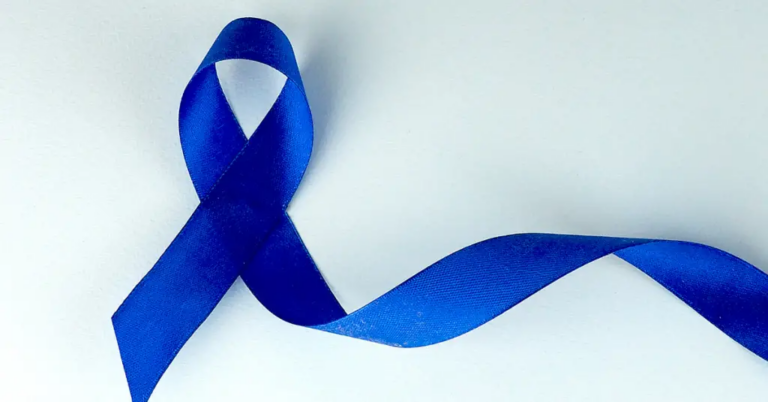For countless people around the world, coffee isn’t just a beverage; it’s the magical elixir that completes their day, a comforting ritual that kickstarts their mornings. That first cup of coffee in the morning, infused with anticipation and caffeine, is often seen as the essential opening act to a productive day. However, have you ever considered that your cherished morning coffee routine might not be the best way to kickstart your day?
Health Benefits of Coffee
Caffeine is the first thing that comes to mind when you think about coffee. But coffee also contains antioxidants and other active substances that may reduce internal inflammation and protect against disease, say nutrition experts from Johns Hopkins University School of Medicine.
Embracing a daily coffee habit may yield the following health advantages:
- Lower Risk of Early Death: A sweeping 2017 study in the British Medical Journal revealed that coffee enthusiasts had a lower likelihood of succumbing to any cause of death compared to non-coffee drinkers. As a general guideline, the Food and Drug Administration (FDA) recommends a daily caffeine intake of no more than 400 mg. [1]
- Reducing Cancer Risk: Research links coffee consumption to a decreased risk of prostate and endometrial cancers, in addition to potentially lowering the odds of certain neurological, metabolic, and liver conditions. [2]
- Preventing Type 2 Diabetes: Research suggests that a higher coffee intake correlates with a diminished risk of developing type 2 diabetes. This risk reduction is consistent across various levels of increased consumption, and the type of coffee (caffeinated or decaffeinated) made no significant difference. [3]
- Lower Risk of Liver Disease: Data indicates that any level of coffee consumption, as opposed to no coffee at all, is associated with a lowered risk of non-alcoholic fatty liver disease, liver fibroids, and liver cirrhosis. Furthermore, there appears to be a significant connection between coffee consumption and a reduced likelihood of gallstone disease.
- Better Protection From Dementia and Depression: Studies consistently link coffee consumption to a lower risk of Parkinson’s disease. Coffee consumers also seem to be at a reduced risk of developing depression and other cognitive disorders, including Alzheimer’s disease.
- Better Overall Health: According to the American Heart Association (AMA), drinking at least one cup of coffee daily may lower your long-term risk of heart failure. Studies show that compared to people who drink no coffee, consuming caffeinated coffee reduces the risk of heart failure by about 12% per cup. The AMA notes that increasing coffee consumption should not replace long-proven risk reduction methods, such as stopping smoking, losing weight, and exercising.
The Darker Side of Coffee: Potential Health Risks
While there’s a lot to love about coffee, you can have too much of a good thing. It’s important to distinguish the health benefits from the side effects, especially if you’re consuming it too much and if you have existing conditions.
- Heart Palpitations and High Blood Pressure: Excessive caffeine can lead to increased heart rate, irregular heartbeats, and elevated blood pressure, which, in turn, might increase the risk of cardiovascular diseases. [4]
- Digestive Issues: Overindulgence in coffee can irritate the stomach lining, leading to gastritis or ulcers. It can also exacerbate acid reflux or GERD in susceptible individuals.
- Insomnia and Restlessness: As a stimulant, too much coffee, especially later in the day, can disturb sleep patterns, leading to insomnia or fragmented sleep.
- Bone Density Concerns: Excessive caffeine consumption can interfere with calcium absorption, potentially leading to decreased bone density and an increased risk of fractures. [5]
- Anxiety and Jitters: High doses of caffeine can exacerbate anxiety symptoms, leading to feelings of nervousness, increased heart rate, and the notorious caffeine-induced “jitters.”
- Dependency: Relying heavily on coffee can lead to caffeine dependence, where individuals might experience headaches, fatigue, irritability, and difficulty concentrating without their regular dose.
While moderate coffee consumption has its perks, it’s essential to remember that moderation is key. Listening to one’s body and understanding individual tolerance levels can ensure that the coffee experience remains a pleasurable one.

Why You Shouldn’t Drink Coffee First Thing In the Morning
Coffee, with its robust aroma and rich taste, has been an iconic morning ritual for many. But recent insights suggest it might be worth hitting the snooze button on our caffeine fix right after waking up. Let’s find out why:
The Hydration Factor
It’s no secret that hydration is paramount for our body’s optimal function. Enter coffee – while it undeniably quenches the thirst, its caffeine content also prompts more frequent trips to the restroom. Even though the water in your coffee does tally up with your daily fluid intake, it’s not the most efficient way to replenish your body’s water reserves after a night’s rest. Rather than making coffee the star of your morning, it could be more beneficial to let a refreshing glass of water take center stage first.
Coffee and Cortisol: A Hormonal Tango
Critics have often spotlighted coffee’s interaction with cortisol, the body’s primary stress hormone. Drinking coffee prompts a surge in cortisol production. This is intriguing, especially considering cortisol levels naturally peak during the early hours of our day. [6]
The upshot? You might be stacking caffeine-induced cortisol on top of your body’s own morning spike. This doesn’t necessarily mean doom and gloom for regular coffee enthusiasts, as their bodies might adapt over time. However, to truly harness the invigorating essence of caffeine, delaying that first cup for an hour or so after waking might be the key.
The Starfleet Verdict
Drawing inspiration from the Starfleet’s reverence for coffee as “the finest organic suspension ever devised,” there’s no need to banish it from your mornings entirely. It’s merely a suggestion to postpone its entrance a little. Let water be your initial morning elixir, and then, when the stage is set, let coffee make its grand appearance.

So What Time Should You Drink Coffee?
Experts typically recommend waiting at least 30 to 60 minutes after waking up before enjoying your coffee. The benefits of delaying your coffee consumption center around allowing your body to wake up naturally.
Beginning your day with water or a nutritious breakfast can help rehydrate your body and kickstart your metabolism without the immediate caffeine jolt. By doing this, when you eventually savor that cup of coffee a bit later in the morning, it can have a more balanced and sustainable effect, offering alertness without the potentially disruptive surge in cortisol levels.
How Much Coffee Is Safe to Drink Each Day?
The Food and Drug Administration recommends people cap their daily caffeine intake at 400 mg or about four or five 8-ounce cups of coffee. However, for pregnant or breastfeeding mothers, it’s essential to consult your healthcare provider for guidance on caffeine consumption. Remember, caffeine sensitivity varies among individuals, so don’t hesitate to cut back if you experience jitteriness.
Opting for healthier coffee additions, such as milk or flavorings like vanilla, cardamom, cinnamon, or cocoa powder, can enhance the beverage without excess sugar or cream. While coffee certainly has its perks, it’s only one piece of the puzzle; maintaining a balanced diet, staying active, and managing weight are equally crucial factors in overall health.
My Personal RX: How to Prevent Acid Reflux as a Coffee Lover
If you’re a coffee enthusiast, you know the blissful aroma and robust flavor that a cup of joe brings to your mornings. However, that same beloved brew can sometimes lead to a less pleasant experience: acid reflux. The good news is that you don’t have to choose between your love for coffee and a comfortable stomach. With a few strategic tweaks to your coffee routine, you can savor your daily dose without the burn. Here’s your personalized prescription for preventing acid reflux as a coffee lover:
1. Opt for Low-Acidity Coffee: Not all coffees are created equal when it comes to acidity. Look for coffee brands or blends specifically labeled as “low-acid” or “smooth.” These varieties are less likely to trigger acid reflux.
2. Choose the Right Roast: Dark roasts tend to be less acidic than their lighter counterparts. So, when you’re shopping for coffee beans, reach for the dark roast options.
3. Brewing Matters: How you prepare your coffee can make a significant difference. Cold brew coffee, for example, is often gentler on the stomach due to its lower acidity. Consider exploring different brewing methods to find what suits your stomach best.
4. Limit the Quantity: Enjoying smaller portions of coffee can help reduce the likelihood of acid reflux. Consider sipping on a single cup instead of guzzling multiple large mugs throughout the day.
5. Pay Attention to Timing: Avoid drinking coffee on an empty stomach, especially in the morning. Instead, have a small meal or snack before indulging in your coffee to create a protective buffer against acid reflux.
6. Watch Your Additions: Be cautious about what you add to your coffee. Dairy, sugar, and flavored syrups can exacerbate acid reflux for some individuals. Opt for lactose-free milk or non-dairy alternatives and use less sugar or natural sweeteners.
7. Stay Upright: After enjoying your coffee, remain in an upright position to minimize the risk of stomach acid flowing back into your esophagus. Avoid lying down immediately after your coffee fix.
8. Stay Hydrated: Coffee can have a dehydrating effect, which may worsen acid reflux symptoms. Balance your coffee consumption with plenty of water throughout the day to stay hydrated.
9. Shape Holistic Morning — and Daily — Habits: Dive into a comprehensive approach to health that considers every cup of drink you consume. Get your free copy of my 50-page Protocol for Optimizing Your Health and Wellbeing today.
10. Boost Your Mornings Naturally: For those times you feel you’ve had one too many cups, or simply looking for a caffeine-free energy boost, Super Greens powder supplement is your best bet. Enhance your morning ritual and dive into a blend of nutrition from full-spectrum superfoods.

Sources:
- Poole, R., Kennedy, O. J., Roderick, P., Fallowfield, J., Hayes, P., & Parkes, J. (2017). Coffee consumption and health: umbrella review of meta-analyses of multiple health outcomes. BMJ, j5024. https://doi.org/10.1136/bmj.j5024
- Wang, A., Wang, S., Zhu, C., Huang, H., Wu, L., Wan, X., Yang, X., Zhang, H., Miao, R., He, L., Sang, X., & Zhao, H. (2016). Coffee and cancer risk: A meta-analysis of prospective observational studies. Scientific Reports, 6(1). https://doi.org/10.1038/srep33711
- Kolb, H., Martin, S., & Kempf, K. (2021). Coffee and lower risk of type 2 diabetes: Arguments for a causal relationship. Nutrients, 13(4), 1144. https://doi.org/10.3390/nu13041144
- Ayim Djamson, M.D. (n.d.). How caffeine can lead to palpitations: Ayim Djamson, M.D.: Cardiology. https://www.metrocardiovascular.com/blog/how-caffeine-can-lead-to-palpitations
- American Bone Health. (2019, March 18). Coffee, tea and bone health – American Bone Health. American Bone Health. https://americanbonehealth.org/nutrition/bonesense-on-coffee-tea-and-bone-health/
- Lovallo, W. R., Whitsett, T. L., Al’Absi, M., Sung, B. H., Vincent, A. S., & Wilson, M. F. (2005). Caffeine stimulation of cortisol secretion across the waking hours in relation to caffeine intake levels. Psychosomatic Medicine, 67(5), 734–739. https://doi.org/10.1097/01.psy.0000181270.20036.06












 Subscribe to Ask Dr. Nandi YouTube Channel
Subscribe to Ask Dr. Nandi YouTube Channel









